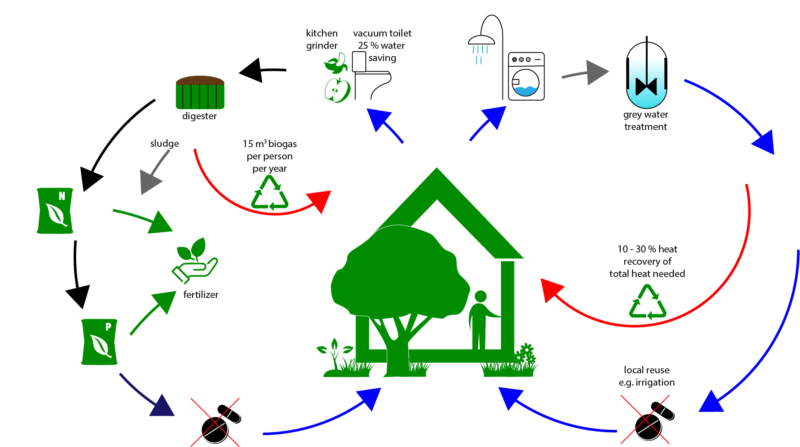For those who are interested in circular urban water management solutions:
There will be a session on Circular Urban Water Management during the 𝗘𝘂𝗿𝗼𝗽𝗲𝗮𝗻 𝗪𝗮𝘁𝗲𝗿 𝗧𝗲𝗰𝗵𝗻𝗼𝗹𝗼𝗴𝘆 𝗪𝗲𝗲𝗸 (𝟮𝟬𝟮𝟮) 𝗘𝗪𝗧𝗪 on Tuesday 20 September. Desah will share their experience with its innovations in sanitation technology together with other experts in the field.
The program is as follows:
Tuesday 20th of September 11:00 – 12:30
𝐬𝐞𝐬𝐬𝐢𝐨𝐧 𝟏.𝟓 𝐂𝐢𝐫𝐜𝐮𝐥𝐚𝐫 𝐔𝐫𝐛𝐚𝐧 𝐖𝐚𝐭𝐞𝐫 𝐌𝐚𝐧𝐚𝐠𝐞𝐦𝐞𝐧𝐭
Chair: Dr.Ir. Peter van der Maas, Hogeschool Van Hall Larenstein – VHL University of Applied Sciences
Current urban water management in the Netherlands is built on large-scale, central systems for drinking water supply, stormwater drainage and wastewater treatment. Compared to the current central systems, the local collection and treatment of wastewater may have severe advantages, especially with regard to recovery of energy, water and other resources, and making these resources locally available. Therefore, decentral water systems at neighborhood level offer opportunities in the context of both climate adaptation and the transition to circular economies. In this session we discuss real life experiences and new insights with regard to (decentral) water treatment systems, focusing on recovery and reuse of water, energy and other resources.
♻️ Introduction – dr.ir Peter van der Maas, Van Hall Larenstein University of Applied Sciences
♻️ Source Separated Sanitation; Why, When and Where? – prof.dr.ir. Grietje Zeeman, Wageningen University & Research
♻️ Innovation in sanitation technology – experiences in Fryslân and Sweden – ir. Sybren Gerbens, Wetterskip Fryslân and dr.ir. Sybrand Metz, Desah
♻️ Transitions in urban water systems – challenges for governance – Anne Helbig BSc , Gemeente Groningen and Johan Bel MBA, Mijn Waterfabriek
♻️ Plenary discussion and closing remarks



